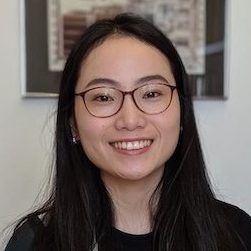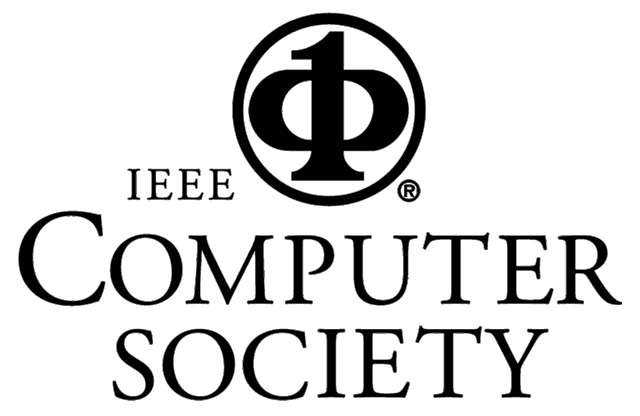Session 1: Caches
Weidong Shi (University of Houston)
Avenger: Punishing the Cross-Core Last-Level Cache Attacker and Not the Victim by Isolating the Attacker
Yashika Verma (IIT Kanpur) Biswabandan Panda (IIT Bombay)
Chameleon Cache: Approximating Fully Associative Caches with Random Replacement to Prevent Contention-Based Cache Attacks
Thomas Unterluggauer (Intel Corporation), Austin Harris (The University of Texas at Austin), Scott Constable (Intel Corporation), Fangfei Liu (Intel Corporation), Carlos Rozas (Intel Corporation)
PREDATOR: A Cache Side-Channel Attack Detector Based on Precise Event Monitoring·
Minjun Wu (University of Minnesota at Twin Cities), Stephen McCamant (University of Minnesota), Pen-Chung Yew (University of Minnesota at Twin Cities), Antonia Zhai (University of Minnesota)
These Aren't The Caches You're Looking For: Stochastic Channels on Randomized Caches·
Tarunesh Verma (University of Michigan), Achilleas Anastasopoulos (University of Michigan), Todd Austin (University of Michigan)
Data-Out Instruction-In (DOIN!): Leveraging Inclusive Caches To Attack Speculative Delay Schemes Paper Type: Regular·
Pavlos Aimoniotis (Uppsala University), Amund Bergland Kvalsvik (Norwegian University of Science and Technology), Magnus Själander (Norwegian University of Science and Technology), Stefanos Kaxiras (Uppsala University)
 Keynote 1: From Security to Privacy… -- Prof. Todd Austin , University of Michigan / Agita Labs, Inc.
Keynote 1: From Security to Privacy… -- Prof. Todd Austin , University of Michigan / Agita Labs, Inc.Yuval Yarom (University of Adelaide)
For the last five years, I have been slowly inching my research group (and more recently my startup) from the field of security to privacy. These two research areas share a lot of DNA, but they are definitely distinct species. The privacy technology field is an exciting research arena with significant promise to ease the tension between data privacy and data discovery. In this presentation, I will share my journey toward privacy technology research, with focus on the changing goals, technologies, and applications. Hardware security technologies are perfectly positioned to address the challenges in this field in ways that are more performant, capable and expressive than any competing non-hardware technologies. Moreover, hardware-based privacy technologies could potentially one day subsume today's security defenses, providing future security defenses that are cryptographic in strength and vulnerability agnostic.
Todd Austin is a Professor of Electrical Engineering and Computer Science at the University of Michigan in Ann Arbor. His research interests include computer architecture, robust and secure system design, hardware and software verification, and performance analysis tools and techniques. From 2012-2017, Todd was the director of C-FAR, the Center for Future Architectures Research, a multi-university SRC/DARPA funded center that was seeking technologies to scale the performance and efficiency of future computing systems. Prior to joining academia, Todd was a Senior Computer Architect in Intel's Microcomputer Research Labs, a product-oriented research laboratory in Hillsboro, Oregon. Todd is the first to take credit (but the last to accept blame) for creating the SimpleScalar Tool Set, a popular collection of computer architecture performance analysis tools. Todd is co-author (with Andrew Tanenbaum of Vrije Universiteit) of the undergraduate computer architecture textbook, "Structured Computer Architecture, 6th Ed." In addition to his work in academia, Todd is founder of SimpleScalar LLC, and co-founder of Agita Labs Inc. and InTempo Design LLC. In 2002, Todd was a Sloan Research Fellow, and in 2007 he received the ACM Maurice Wilkes Award for "innovative contributions in Computer Architecture including the SimpleScalar Toolkit and the DIVA and Razor architectures." Todd is an IEEE Fellow, and he received his PhD in Computer Science from the University of Wisconsin in 1996.
Session 2: Crypto & ML
David Kaeli (Northeastern University)
Accelerating Polynomial Multiplication for Homomorphic Encryption on GPUs
Kaustubh Shivdikar (Northeastern University), Gilbert Jonatan (KAIST University), Evelio Mora (Universidad Católica de Murcia), Neal Livesay (Northeastern University), Rashmi Agrawal (Boston University), Ajay Joshi (Boston University), José L. Abellán (Universidad Católica de Murcia), John Kim (KAIST University), David Kaeli (Northeastern University)
Sequestered Encryption: A Hardware Technique for Comprehensive Data Privacy·
Lauren Biernacki (University of Michigan), Meron Zerihun Demissie (University of Michigan), Kidus Birkayehu Workneh (University of Colorado Boulder), Fitsum Assamnew Andargie (Addis Ababa Institute of Technology, Addis Ababa University), Todd Austin (University of Michigan)
Establishing Cooperative Computation with Hardware Embassies
Alvin Oliver Glova (UC Santa Barbara), Yukai Yang (University of Pennsylvania), Yiyao Wan (UC San Diego), Zhizhou Zhang (UC Santa Barbara), George Michelogiannakis (Lawrence Berkeley National Labs), Jonathan Balkind (UC Santa Barbara), Timothy Sherwood (UC Santa Barbara)
Foreseer: Efficiently Forecasting Malware Event Series with Long Short-Term Memory
Kailash Gogineni (George Washington University), Preet Derasari (George Washington University), Guru Venkataramani (George Washington University)
 Keynote 2: Looking Beyond Microarchitectural-Only Side Channels -- Prof. Mengjia Yan , MIT
Keynote 2: Looking Beyond Microarchitectural-Only Side Channels -- Prof. Mengjia Yan , MIT

